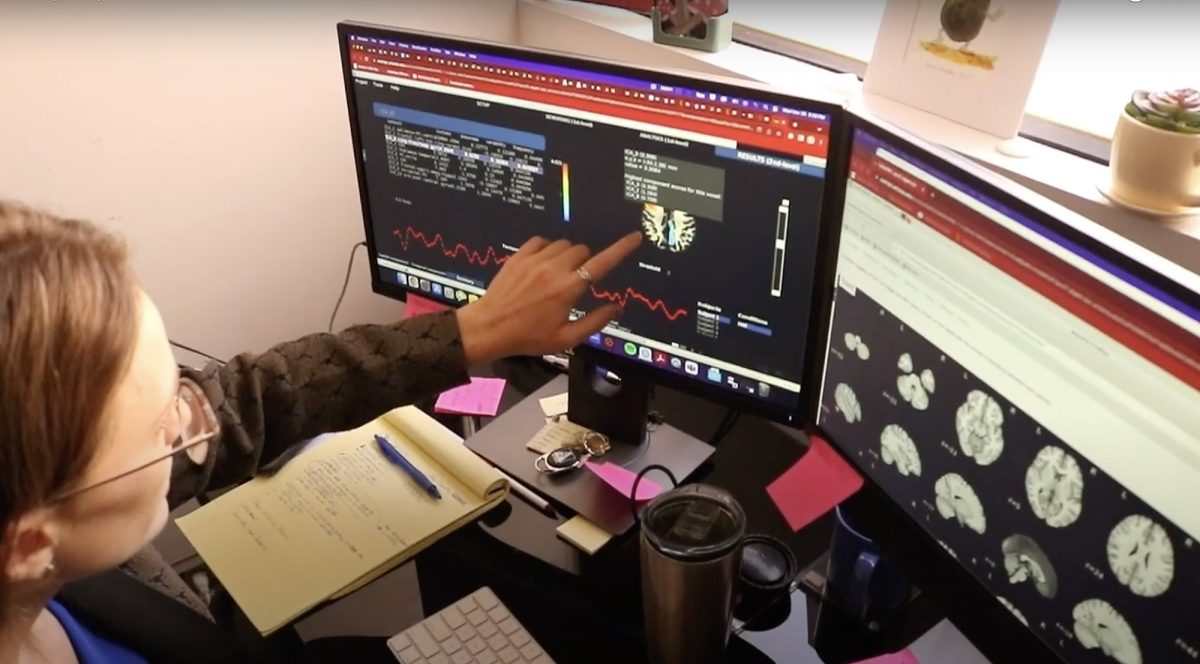One in every 68 children is impacted by autism, according to the National Autism Association. Autism effects the section of the brain that’s responsible for social skills, communication and cognitive function.
When autism is caught early, treatment, therapy, and medication can help children improve. However there is no cure.
Adults with autism especially have difficulty integrating into adult life after graduating high school. Programs like privately funded Chapel Haven West, which was founded in 1972, have made it their mission to assist adults ages 18 to 25 in this transition to living independently.
Kelli Foreman, Speech Language and Hearing Pathologist at Chapel Haven West, said, “We have our students live with us in their apartments, most of them have a roommate. They’re working on independent living skills like cooking, cleaning, and banking, and all those things that we need to learn how to do on our own.”
After two years most Chapel Haven students are able to move out and live on their own. Joe Cox, former Chapel Haven resident and now senior at the University of Arizona, lives on his own with two roommates that he met at Chapel Haven West.
Cox is considered a hybrid student and uses Chapel Haven West for other resources that includes, assisting him with his budget and recreational trips the program takes its students on.
“The skills we learn at Chapel Haven West are invaluable…They’re really helpful to people, and you know adults between the ages 18 to 25 with mild autism or other cognitive impairments,” Cox said. “They’re really helpful because it’s important for kids to learn how to live on their own away from their parents. And it’s important for them to learn how to get along with roommates. So Chapel Haven West is a really helpful program to that effect.”
According to Dr. Jennifer Casteix, a clinical associate professor in the department of Speech, Language, and Hearing Sciences at the University of Arizona, autism can be caused by genetics, but it’s also believed to be caused by environmental factors.
“The belief appears to be that there is a genetic predisposed position to autism that is then triggered by an environmental cause. And by environmental cause, we mean maybe the mom during pregnancy had a infection, and so there was a viral or bacterial infection,” Casteix said.
“Maybe the mother was under huge stress. Advanced maternal and paternal age, so if the mother or father are older, that maybe leads to a predisposition to autism. So that’s an environmental factor. Being born and having the mom during pregnancy be three miles of a freeway. They also wonder if that’s a causal factor. So there’s still so much research, but we do know there are over 200 genes that are possibly implicated in autism,” said Casteix.
Since autism is considered a spectrum disorder, there are varying types of autism and some people who require more assistance than others.
“Some people refer to it as like the spectrum of colors on a rainbow. So you’ll have your reds and oranges, and yellows and greens and what not,” said Foreman. “So you do have folks who are needing higher support, much more higher level of support and are not really living independently nor are they really thinking that that’s their goal,” said Foreman.
Notable people such as Albert Einstein, Isaac Newton, Mozart, and Bill Gates all fall on the autism spectrum.
However, students like Cox, say that referring to autism as high and low functioning can be offensive.
“I really don’t like it when people say, “oh I didn’t even know you were on the autism spectrum, like oh you’re so high functioning,” I’m sorry, but to me that just feels really insulting, and really lack of a better word, patronizing,” Cox said. “People with autism are just like you and me, it’s just that we have other issues. And I don’t really like it when people say “oh you’re so high functioning,” that not a really nice thing to say… We’re just like everybody else we just have different challenges that may come up in certain ways.”
While Chapel Haven West is a great resource for people with autism seeking to live independently, many have found finding affordable outside support once they turn 18 can be a challenge.
According to Casteix, adults with autism who do not have a place to live or someone to care for them often end up in state funded foster homes, and she said for every good home there’s a not so good one.
“So, estate planning, just planning for the future which is something we always need to be thinking about is scary, and I have a feeling a lot of families don’t think about it. So if they don’t have an adult sibling who can care for them, they’re placed in a state care home,” said Casteix.
Casteix said it’s the public school’s responsibility to assist adults with autism until the student turns 21. After turning 21, some adults end up in foster care.
“Adults with autism are starting to call themselves autistic. I’m an autistic adult. They are claiming that cause that is part of who they are. And when we talk about curing them they counter with ‘hey wait a minute I have autism, this makes me special in this way. And why would I want to cure that? Why would I want to fight autism? That’s who I am,’ ” said Casteix.
Curing this cognitive disease is not the current goal, but for people like Joe Cox and Casteix, it’s about growing awareness and creating a place in society for those living with autism as they are because no two are the same.
Alexa Wallen and Gabby Goduco are reporters for Arizona Sonora News, a service from the School of Journalism with the University of Arizona. Contact them at [email protected] and [email protected].







